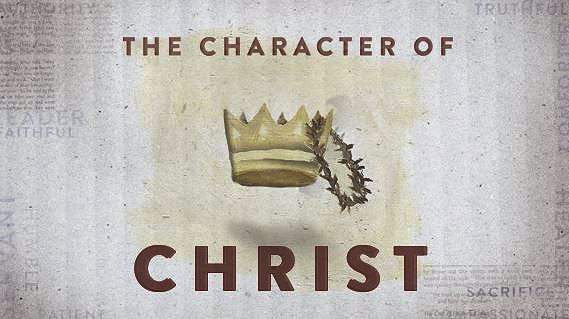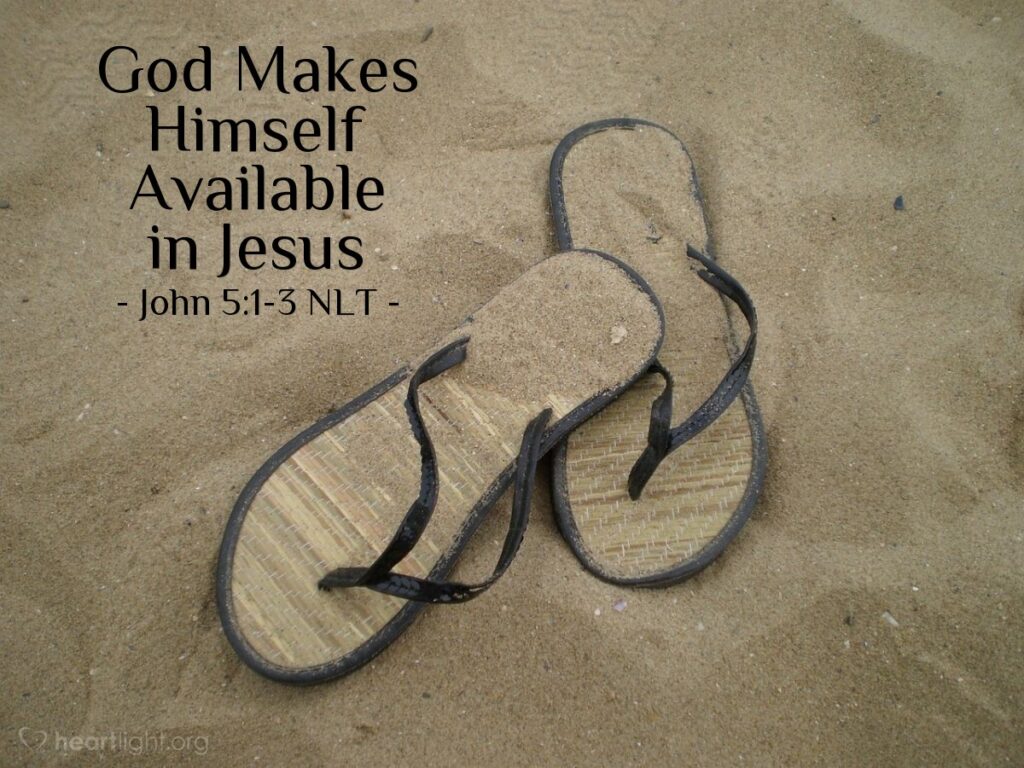Jesus Christ the Son of God – The Character of Christ

Is Jesus Christ a Legend, Lunatic, Liar, or Lord and GOD?
Introduction: –
We have in our previous studies considered, the Initiative that God took in revealing Himself to mankind, and also the claims of Jesus Christ. It thus now behoves us to continue on and consider His Character, and thus see the Man behind the Claims in a fuller measure. The character of Jesus Christ does not in itself emphatically prove the claims to Deity to be true, but what it does do, is reinforce the claims to such an extent, as to remove all doubts.
There have been many throughout the ages who have claimed greatness and even Deity, and the lunatic asylums are full of such people. They have deluded themselves into believing that they were Julius Caesar or a Prime-Minister or Napoleon, and no one has been deceived, except themselves, and for the most part the only followers they have had, have been there fellow patients. Why? Because their characters do not support their claims.
If Jesus were a liar, why would he die for his claim, when he could easily have avoided such a cruel death with a few choice words? If he were a lunatic, how could he have engaged in such intelligent debates with the religious leaders of His day. How could He have handled the stress of his betrayal and crucifixion and continued to reveal such a depth of compassion for those opposing Him? Christ said he was Lord and God. The evidence of His character supports that claim.
C.S. Lewis makes this statement, “A man who was merely a man and said the sort of things Jesus said would not be a great moral teacher. He would either be a lunatic, on the level with a man who says he is a poached egg, or he would be the devil of hell. You must take your choice. Either this was, and is, the Son of God, or else a madman or something worse. You can shut him up for a fool or you can fall at his feet and call him Lord and God. But let us not come with any patronising nonsense about his being a great human teacher. He has not left that open to us.”
It would be true to say right now and before we progress any further that we do place Jesus Christ in a class with any other. He is in a class of His own. We could put a list together of well-known and possibly eminent people such as – “Confucius, Mohammed, Alexander the Great, Charles the Great, Napoleon, and even Shakespeare”. However, it is an offence, less against orthodoxy than against decency to put Jesus into this list.
You see, Jesus is not one of the Group of those considered to be the World’s great. He is far beyond that classification and grouping
- He is not the great, He is the Only.
- He is simply Jesus; nothing could add to that.
- He’s beyond all analyses confounding all our pinnacles of human understanding.
- Jesus although the subject of criticism is in fact beyond it.
- It is He Jesus that leaves our spirits and minds in awe.
If those mentioned before were to enter a room many would leap up to meet them but if Jesus were to come into it, we could do nothing but fall down and worship Him.
When we look closely however at Jesus Christ, as He is revealed in the Bible, there is no discrepancy in anyway, between His Words and His Character. In fact, His character is absolutely unique.

We are going in this time together to take a look at Jesus Christ and His Character, and not to see Him in comparison, for there really isn’t any to truly compare Him with, but in contrast.
Jesus claimed to have lived a Sinless life, which begins in itself to separate Him from others. Why? Because the Bible tells us that all men everywhere have sinned, and this Sinlessness is of the utmost importance, and thus we shall now take a look at the evidence there is to support it, and this will show itself to us in four distinct ways: –
- What Jesus Christ Thought of Himself
- What Jesus Christ’s Friends Said
- What Jesus Christ’s Enemies Conceded
- What of Jesus Christ we can See for Ourselves?
Let’s then start at the beginning of our list.
What Jesus Christ Thought of Himself

The first thing in context to the above heading (What Jesus Christ Thought of Himself) that we should consider are the occasions when Jesus Claimed directly to be without Sin. In the familiar story of “The Adulterous Woman” in “John 8:1-11”, we have an instance of this. Here is a Woman who had been caught red handed as it were by the Jews of the day, who had obviously been laying in wait for her. They drag her through the streets and cast her at the feet of Jesus Christ.
As an aside for a moment it’s good to see the contextual image that is being presented here because our “Modern / Western” values are very different from those of Jesus day.
The Jewish Law of the day demanded that she be stoned to death and in Judaism, adultery is considered one of the most grievous sins.
Adultery – sexual intercourse between a married woman and a man other than her husband – is the only sexual offense recorded in the Ten Commandments. It is again recorded in the “Holiness Code” of “Leviticus 20:10” where it says – (ואיש אשר ינאף את־אשת איש אשר ינאף את־אשת רעהו מות־יומת הנאף והנאפת) – “And the man that committeth adultery with another man’s wife, even he that committeth adultery with his neighbour’s wife, the adulterer and the adulteress shall surely be put to death.” KJV
In “Genesis 20:9” we read ( ויקרא ) אבימלך לאברהם ויאמר לו מה־עשית לנו ומה־חטאתי לך כי־הבאת עלי ועל־ממלכתי חטאה גדלה מעשים אשר לא־יעשו עשית עמדי׃ ) – “Then Abimelech called Abraham, and said unto him, What hast thou done unto us? and what have I offended thee, that thou hast brought on me and on my kingdom a great sin? thou hast done deeds unto me that ought not to be done.” KJV.
Adultery is deemed to be “the great sin” and the Talmud calls adultery ha’averah (the sin par excellence) and in accordance with rabbinic tradition, it along with incest, is considered one of the three sins akin to idolatry and murder.

So, now back to the woman. The religious leaders and the accompanying crowd threw the Law at Jesus, hoping to trick Him. However, instead we discover that Jesus turns all the hatred and the bitterness back on the crowd, and says to them, “Let him that is without sin amongst you cast the first stone.” – “John 8:7.” The crowd slinked away as a result of this because each recognised their own sinfulness. Jesus however by staying, and telling the woman to go her way, and also forgiving her, was by inference claiming to be sinless.
It is important to clarify and state that there is a difference between the Old Testament and New Testament. Under the Old Covenant law, given to ancient Israel under a theocracy, the punishment for adultery was death as we have seen in “Leviticus 20:10”. In the New Testament, Jesus brought into being a new law. Sure, it is true that as the Scriptures declare “The wages of sin is death” – “Romans 6:23”, but adultery no longer carries the death penalty.
On many other occasions also, we find Jesus implying by what He said that He was not like other men, the following are instances of these occasions:-
- “All other Men were lost Sheep; He had come as the Good Shepherd, to seek and to save them” – “John 10:11”
- “All other Men were sick with the disease of Sin; He was the Doctor come to Heal” – “Luke 19:10”
- “All other Men were in the Darkness of Sin and Ignorance; He was the Light of the World” – “John 9:5”
- “All other Men were Hungry; He was the Bread of Life” – “John 6:35” – “John 6:48”
- “All other Men were Dead in trespasses and sin; He was the Resurrection and the Life” – “John 11:25”
Now all of these examples show to us the “Moral Uniqueness”, that Jesus was conscious of. It is therefore not surprising then that although we are told on many occasions of the temptations He endured, we are not told anywhere of His sins, and also combined with this we never read of Him, either confessing sin or asking for forgiveness for sins He had committed. In fact, when one looks at Him, He shows no awareness of “Moral Failure” and appears to have no feelings of guilt or estrangement from God. It seems very clear that He lived in an un-broken communion with His Father.
These things are really remarkable for two reasons.
The first reason is that Jesus possessed a very Keen Moral Sense, the Bible tells us in “John 2:25” – “He knew what was in man”, and often in the Gospels we read of Him looking into and reading the Inner thoughts of the crowds, and the clear vision that He had, led Him to show the Hypocrisy and Sin of the crowds up, and when He did, He often pronounced thunderous tones of woes upon them, yet that penetrating and piercing eye could see no sin in Himself.
The second reason is that unlike the experiences of the People of God, that the nearer we get to God the more we are aware of our Sinfulness, Jesus lived nearer than any and yet, was not aware of any sin whatsoever.
What Jesus Christ’s Friends Said
It is I trust clear from what we have seen thus far that Jesus had a very strong opinion of Himself, and apparently, unlike, ordinary Man, rightly so. But it is the “Nearest and Dearest” as it were who really know us for what we are, and in the case of Jesus, His nearest and dearest would be the Disciples, who spent so much time with Him, and so we shall now consider what they had to say.
It could rightly be said that the opinions of the Disciples would be biased, and that they would deliberately paint a very glamourous picture of Jesus, because it would suit their purpose, however, we would slander them in saying this, there statements cannot be lightly dismissed, and for the following reasons.
1a – The Disciples Lived Closely to Jesus
The disciples of Jesus Christ lived in a very close relationship with Jesus for at least three years, they ate together, they slept together, they shared trials and tribulations together, they had a common Bank Account, and also got on each other’s nerves from time to time. With all this, if the saying “Familiarity breeds contempt”, is true, then a really contentious situation would have arisen. The disciples often quarrelled amongst themselves to, and yet even with this very close and intimate knowledge of Jesus Christ, we discover that without exception the disciples all declare Jesus to be Sinless.
1b – The Testimony of the Disciples and Writers of the New Testament
The disciples of Christ originally were just ordinary Fishermen and Tax gathers etc., and yet they were all Jews who had been raised on a diet of the Old Testament teachings, and even when they were designated Apostles, they were still seated in the traditions of their fathers. They certainly knew that Sin was a universal disease, and they would have understood scriptures such as, “Romans 3:1” – “What advantage, then, is there in being a Jew, or what value is there in circumcision?” realising that the Law now provided nothing outside of Jesus – “Isaiah 53:6” – “We all, like sheep, have gone astray, each of us has turned to our own way; and the LORD has laid on him the iniquity of us all.” and they would not have therefore glibly declared Jesus to have been sinless unless they had seen it to be the case.

This testimony of the disciples etc is seen further evidenced for us in their writings, and because the Bible is God Breathed, or it came about due to the Inspiration of the Holy Spirit, and is not a collection of cunningly devised fables, the declaration of the sinlessness of Jesus is even more credible, let’s see some of their statements relating to Jesus, which I think will be pretty clear.
- “Jesus a Lamb without Spot or Blemish” – “1 Peter 1:19”
- “Jesus committed no sin; no guile was found on His lips” – “1 Peter 2:22”
- “For to this you have been called, because Christ also suffered for you, leaving you an example, so that you might follow in His steps. He committed no sin, neither was deceit found in His mouth.” – “1 Peter 2:21-22”
- “For we do not have a High Priest who cannot sympathise with our weaknesses, but one who in every respect has been tempted as we are, yet without sin.” – “Hebrews 4:14”
- “And you know that He was manifested to take away our sins, and in Him there is no sin.” – “1 John 3:5”
The Apostle John, declares in “1 John 1:8-10”, that all men everywhere are Sinners, and that we lie, I we say that we haven’t sinned then in “1 John 3:5” declares that Jesus was manifest to take away sin, in whom there was no sin.
The Apostle Paul in his writings also declares Jesus to be Sinless, in “2 Corinthians 5:21” and “Hebrews 4:15” and “Hebrews 7:26”.
In short, the testimony of first-century Christians to the character of Jesus was that He was without sin, perfect in holiness and righteousness. There were no credible dissenting statements from Christians in the first or even second century.
Even Gerrit Cornelis Berkouwer, (1903–1996) who was for years the leading theologian of the Reformed Churches in the Netherlands (GKN) and occupied the chair in systematic theology of the Faculty of Theology, Free University (VU) in Amsterdam said “Ancient heretics, however divergent they were in Christology, did not attack the sinlessness of Christ.”
So, then before us “What Jesus thought of Himself” and “What His friends thought of Jesus”, but now for the real acid test.
The Testimony of the Enemies of Jesus
In looking at what the enemies of Jesus said, we could conclude that we will have a real test of His claims, because they will in no wise be wanting, to present Him in any good light at all, and would not be biased either. With this in mind, we also should consider how Jesus was considered in relation to their opinions.
We are told for example, in Scripture that “They watched Him” and that “They tried to entrap Him in His talk” and the idea behind it was that if they could win a debate with Jesus relating to the Law, then they had the victory.
The Pharisees and other leaders diligently observed Jesus and were wholly committed to finding fault in Him and trap Him in His own words. What, however, was the best they could come up with?
| 1 | Broke the Sabbath by doing work on it | Matthew 12:1-14 |
| 2 | Was a friend to tax collectors and other sinners, and even ate with them | Luke 7:34 |
| 3 | Claimed to be the King of the Jews | Mark 15:2 |
| 4 | Taught the people to refuse to pay taxes to Caesar | Matthew 22:15-21 |
| 5 | Threatened to destroy the Jerusalem temple | Matthew 24:1-2 |
| 6 | Committed blasphemy by forgiving sins | Mark 2:7 |
| 7 | Cast out demons because He was in league with Beelzebub (the Devil) | Matthew 12:24 |
| 8 | Committed blasphemy by claiming to be the Son of God or equal to God | John 10:33 |
They tried in four specific ways to entrap Jesus, and they are found in “Mark 2:1-6”, and they take the following direction: –
- The Accusation of Blasphemy
- The Accusation of Evil Associations
- The Accusation that His Religion was Frivolous
- The Accusation of Sabbath Breaking
The Accusation of Blasphemy
The harshest of the criticisms the Pharisees were able to offer up was the charge of blasphemy. In all four Gospels in various ways it is reported.
The accusation that Jesus was being blasphemous is seen in the following statement by His accusers: –
“Why does this fellow talk like that? He’s blaspheming! Who can forgive sins but God alone?” – “Mark 2:7” NIV
There wasn’t anything intrinsically wrong in the statement they were making. After all, it is absolutely true that “Only God can forgive sins” but that is not the point in this context.
We know the story / context well in “Luke 5:23-25.” Jesus had just healed a man and also followed the healing of the man’s body by the healing of his soul in stating that He was also forgiving him of his sins. We recognise here that Jesus was portraying a “Divine Prerogative” and if Jesus is God (which He is) then He was rightly expressing His prerogative.
However, the religious leaders of the day recognised by the act of forgiving Jesus was reiterating one His claims.
“Are you the Christ, the Son of the Blessed?” they asked, and Jesus said, “I AM. And you will see the Son of Man sitting at the right hand of the Power and coming with the clouds of heaven.” To that answer “the high priest tore his clothes and said, “What further need do we have of witnesses? You have heard the blasphemy! What do you think?” And they all condemned Him to be deserving of death” – “Mark 14:61-64”
As proof that He had the divine authority to act as God would, Jesus pointed to the fact that He did certain things that only God could do. It was through His miracles that Jesus demonstrated that His claims to be the Son of God or equal to God were not blasphemous.
In the face of accusations Jesus didn’t allow legalistic judgments stop Him from healing on the Sabbath. In the face of accusations Jesus still befriended the marginalised. In the face of accusations Jesus didn’t endorse the sin of persons by spending time with them No! He rather, befriended them to free them of their sin.
The Accusation of Evil Associations
The Jews of the day and generation of Jesus were a very sectarian bunch and were very aloof to all but Jews. Ordinary people, many of whom would also have been Jews such as Publicans and Harlots etc, were entirely ostracised. However, Jesus not only spoke to them all, but He also allowed them to touch Him. The touching, for the traditional Jew would have made Him unclean, but then they never showed any grace or mercy. It was all the “Letter of the Law”, and not the “Spirit of Love”.

Jesus in the new order that He had come to usher in was an expression of “Kingdom Love and Acceptance” and in doing so He earned the title, “Friend of Sinners”, and was proud to bear it – Why? Because He had claimed to come to seek and to save that which was lost – “For the Son of man is come to seek and to save that which was lost” – “Luke 19:10”.

As an aside just now let me say – God cares about the souls of His image bearers and so must we. Our friends, family, co-workers, neighbours, and acquaintances who do not know Christ will endure God’s wrath forever if they do not trust Jesus before they die. Let’s therefore pray that God would send lost people our way and that we would be ready to preach the gospel to them. Let’s also look for the lost among those whom we know so that we can share the gospel with them.
The Accusation that His Religion was Frivolous
The Pharisees and the Sadducees were the religious leaders of their day. They regularly engaged in fasting and they adhered excessively to the religious traditions of the day and Jesus rebuked them for it. Matthew 24 has much to say on this for instance in “Matthew 23:23-24” we read “Woe to you, scribes and Pharisees, hypocrites! For you tithe mint and dill and cumin and have neglected the weightier provisions of the law: justice and mercy and faithfulness; but these are the things you should have done without neglecting the others. “You blind guides, who strain out a gnat and swallow a camel!” Because Jesus would not uphold their hypocritical ways, He was thus called by them a “Glutton and a Drunkard” – “When the Son of Man came, he ate and drank, and everyone said, ‘Look at this man! He is a glutton and wine drinker, a friend of tax collectors and other outcasts!’ God’s wisdom, however, is shown to be true by its results.” – “Matthew 11:19” Good News Translation.
The Pharisees and Sadducees accused Him because Jesus openly despised their Religious ways because they were simply done for show, and not out of any genuine and sincere motives. Jesus took what He did seriously, and in doing so proved that true religion is not simply words, but it is also seen in actions i.e. God’s wisdom, however, is shown to be true by its results.
The Accusation of Sabbath Breaking
Was Jesus ignoring the command to keep the Sabbath found in the Hebrew Scriptures such as “Deuteronomy 5:15” – “You shall remember that you were a slave in the land of Egypt, and the Lord your God brought you out of there by a mighty hand and by an outstretched arm; therefore the Lord your God commanded you to observe the sabbath day.”
One of the biggest complaints that the Pharisees had other than Christs claim to be God was that Jesus on the Sabbath Day – a Saturday – healed the sick in the case of the man with the shrivelled hand – “Matthew 12:9-14”
In “Mark 2:23-28” we are informed that the disciples of Jesus had plucked and eaten some Corn from the fields. Why is this considered to be such a big deal? It was that it was considered to be “Working by Reaping”.
Where did the Sabbath Concept Originate? It’s about Rest and Relationship

There are two main Hebrew words used for rest in the Bible. The first is shabbat – שַׁבָּת, which gets partially translated into the English word sabbath. This word for rest simply means to “stop working.” It can be thought of an hourly job where you clock out at the end of a shift. The work is done; there’s no more until you clock back in.
The second main Hebrew word for rest used in the Hebrew Scriptures is nuach – נוּחַ. The word means to “dwell or to settle”. So clearly this is not akin to clocking out from an hourly job. No! It’s really as an example like taking a time of rest sitting in front of a fire with family it’s essentially about being deliberately restfully.
It’s interesting that there is such a close relationship between the two shabbat and nuach seen in “Genesis 2:2-3” – Interestingly God inaugurates around the same time both “Stopping and Resting”.
“And on the seventh day God ended His work which He had done, and He rested on the seventh day from all His work which He had done. Then God blessed the seventh day and sanctified it, because in it He rested from all His work which God had created and made.”
Even today Orthodox Jews refrain from working on the Sabbath; driving or riding in a car or any other powered transportation; using a telephone or any other electrical appliance; cooking and baking.
As followers of Jesus, we aren’t required to follow the laws given to Israel by God exactly. These were given at a specific time to a specific people group for a specific purpose. Yet the wisdom of those laws is enduring, and the law of the Sabbath is pure gold. It is not a commandment we are bound to; it’s a promise of rest and relationship with God that we’re invited to.
So were their accusations valid – Of course not! because in looking at the life or Jesus, we always see Him as a keeper of the Law, and in fact in times of controversy, Jesus used it as the arbitrator. Jesus responds with an argument that uses the Law and redefines the Sabbath, asserting his role as the promised Messiah.
All the accusations as we see are so trivial and without Foundation that in the end the Jewish Leaders even had to bring false witnesses testify against Christ, and even then, the Roman Law declared Him innocent.
Our final consideration now in this study is:
What We Can see For Ourselves
In assessing the Character of the Lord Jesus, we do not need to simply rely on the testimony of others, we can make our own estimation, and the moral perfection which was quietly claimed by Jesus, are quite clearly seen in the Gospels and we are given ample opportunity to form our own judgement.
How do we see Him portrayed?
| 1 | We see Him in Privacy with His disciples, we also see Him in the Hustle and Bustle of the Crowd |
| 2 | He is hero worshipped and He is also chased by the mob |
| 3 | We see Him in the heights of popularity and also in the depths of rejection, yet He is the same |
| 4 | He has no moods and does not change |
| 5 | He also believes what He teaches and practises it, yet He is not a fanatic |
| 6 | His doctrine is unpopular, but He is not an eccentric |
| 7 | We see His humanity in joy, sorrow, tiredness, and hunger again and again |
Conclusion: –
The claims of Jesus off Himself are supported in every way, and we do well to believe in the Christ of Calvary.

If the holy, morally perfect God were to become flesh as the Bible declares in “John 1:14” as a human being, one would reasonably expect that He would live a good and righteous life. We have solid reasons to think that Jesus Christ did fit this description.
